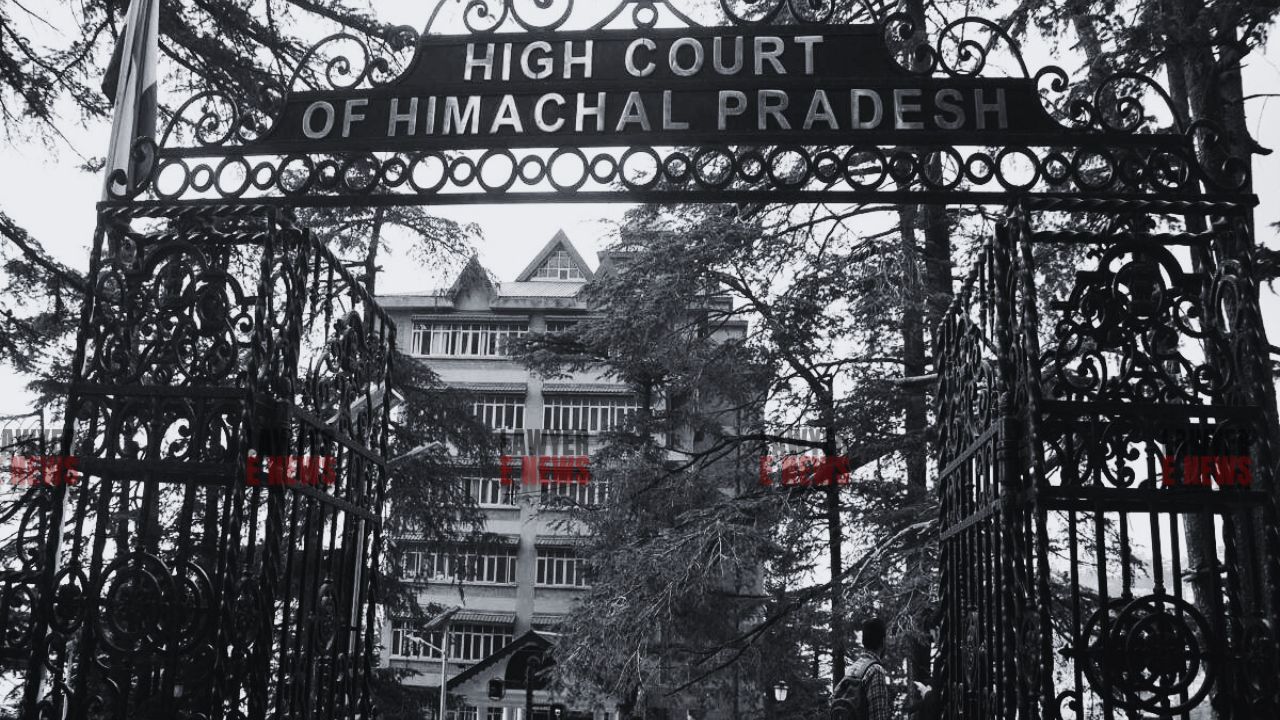-
by Admin
18 February 2026 2:50 AM



“Once the trial commences, it should be allowed to reach its natural conclusion — bail granted mid-trial undermines justice” - Delivering a sharply reasoned decision Himachal Pradesh High Court at Shimla refused to grant bail to Abdul Khalik, accused in a case of attempted murder and unlawful assembly, under Sections 307, 452, 147, 148, 149 of the IPC and Section 25 of the Arms Act. The Court, presided over by Justice Rakesh Kainthla, stressed that bail cannot be granted merely because the victim has turned hostile, especially when the allegations are serious and the trial is already in progress.
The Court ruled emphatically: “Ordinarily, in serious offences like rape, murder, or dacoity, once the trial commences and the prosecution begins examining witnesses, the Court, be it the Trial Court or the High Court, should be loath in entertaining the bail application of the accused.”
“Judicial Discipline Prevents Successive Bail Without Substantial Change in Circumstance”
The case originates from a FIR registered on 10.04.2024 in District Sirmaur, Himachal Pradesh, alleging that Abdul Khalik, along with co-accused, forcibly entered the house of the complainant and opened fire. Although no one was injured, forensic evidence confirmed gunshot residue, and a pistol was recovered at the instance of Abdul Khalik. The FIR further indicates the presence of gang activity, with the accused allegedly acting under the direction of one Gurvinder @ Vinder.
The petitioner’s first bail application was dismissed in September 2024. The present petition, being the second, was filed on grounds including alleged trial delays, parity with co-accused who were granted bail, and the complainant’s changing testimony.
Justice Kainthla observed: “Once a bail application has been rejected, the subsequent application can only be entertained if there is a substantial and material change in circumstances — not merely cosmetic or strategic modifications.”
Citing State of Maharashtra vs. Captain Buddhikota Subha Rao, the Court reiterated that repeated attempts to secure bail by bypassing judicial consistency can erode public faith in the justice system.
“Judicial propriety and comity demand restraint — it is not open to a litigant to pester every judge until an order to their liking is secured.”
“Gun Recovery, Prima Facie Role and Gravity of Offence Bar Bail at This Stage”
Legal Analysis and Application of Precedent: The Court engaged in a rigorous review of judicial standards for bail laid down by the Supreme Court in Ajwar v. Waseem and others, emphasising that granting bail in cases involving serious offences requires a holistic assessment — not just the presence or absence of injury.
Justice Kainthla quoted: “The Court must weigh factors like the nature and gravity of accusations, the role of the accused, possibility of tampering with evidence, and the likelihood of reoffending.”
In Abdul Khalik’s case, the Court noted the seriousness of the charge under Section 307 IPC (attempt to murder), as well as the evidence on record linking the accused to a recovered firearm.
“The petitioner was part of an armed group that stormed the complainant’s residence, shots were fired, and the weapon was recovered at the instance of the petitioner. These facts, seen collectively, negate the possibility of granting bail.”
The Court further rejected the claim that the absence of injury or the victim turning hostile justifies bail: “That a victim’s deposition is inconsistent or hostile cannot serve as an automatic ground for bail, especially when the trial has already commenced and prosecution evidence is being evaluated. Discrepancies in testimony must be dealt with during final adjudication, not mid-trial bail hearings.”
While the petitioner argued that the trial was being unnecessarily delayed, the Court firmly rejected this claim, stating: “The petitioner has failed to furnish zimini orders or any reliable material showing undue delay. In fact, a witness has already been examined. The trial appears to be proceeding at a normal pace.”
“Bail Cannot be a Strategic Bypass of the Trial Process”
Justice Kainthla’s order ends on a firm note of judicial caution: “This Court does not sit in appeal over the earlier rejection of bail. No new circumstances have emerged since the last order, nor is there any credible delay in the trial. Hence, this petition deserves to be dismissed.”
Accordingly, the bail plea was rejected, with a reiteration that such serious matters must run their full course through the criminal trial process. The Court also clarified that: “Observations made in this order pertain solely to the disposal of this bail application and shall not influence the merits of the trial.”
Date of Decision: 10 April 2025
